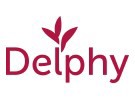The European Interreg project CloseCycle began this year with the goal of bringing parties together to work on closed cycles. Delphy will conduct various studies at its Research Nursery in Hazerswoude-Dorp (the Netherlands) using residual flows from the region. To facilitate this, a local network is being developed with tree growers from Greenport Boskoop, the municipality of Alphen aan den Rijn, and companies from various sectors. One of the studies involves testing various peat-poor and peat-free potting soils based on local residual flows.
Different substrates
Last week, twelve different substrate mixtures were created from a wide range of renewable raw materials, including wood fiber, different types of compost from the region, fermented corn, biochar, Miscanthus, dry manure fraction, and more. Thujas have been potted in these mixtures, and Delphy will monitor the growth of the plants in the different substrates.
Using renewable raw materials in potting soil is a significant challenge for growers. Delphy has conducted research into peat-poor and peat-free mixtures in recent years. According to Delphy, the research within CloseCycle clearly takes a big step forward by incorporating new and local residual flows. Ideally, these residual flows could eventually be upgraded into valuable raw materials for cultivating tree nursery crops and perennials.
International collaboration
The interregional CloseCycle project is carried out by 18 European parties within the North Sea region, including the Netherlands, Belgium, Denmark, France, and Germany. Each party works within its own region or country to upgrade residual flows into valuable end products suitable for agriculture, cities, or other specific purposes, thereby closing cycles. Each country has a specific focus depending on its existing residual flows. The parties share knowledge to learn from each other.
For example, in Belgium, a research party is exploring the possibilities of waste flows from greenhouse horticulture. In Denmark, a school focuses on green bioeconomy and circularity, and it has a farm factory for green biorefinery, a biogas plant, and a pilot biochar factory. In addition to the 'potting soil test,' Delphy will also conduct research into the use of residual flows in open ground.
 Delphy
Delphy